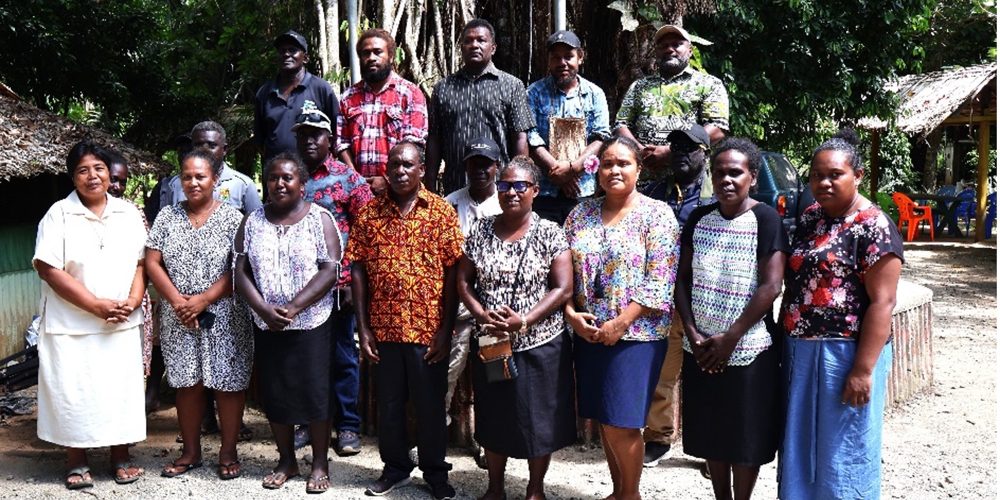The Ministry of Agriculture and Livestock (MAL) through its partnership program with FAO, the Sustainable Transformation of Domestic Agrifood Systems (STODAS) project, held its first provincial Agrifood System Multi-Stakeholder Consultative Forum for Western Province in Gizo this week.
The two days forum was held on Monday 25th and concluded Tuesday 26th November 2024 with the theme “Transforming Agrifood Systems for Sustainable Development: Bridging Gaps, Fostering Collaboration.”
The Agrifood systems in the Solomon Islands are at a critical juncture. The disruptions caused by the COVID-19 pandemic, compounded by global supply chain challenges and inflationary pressures, have highlighted vulnerabilities in our food systems.
The rising costs of food, fuel, feed, and fertilizer – collectively known as the “5F crisis” – have significantly affected the livelihoods of our farmers and the overall resilience of our Agrifood systems.
Jules Damutalau Director (acting) Planning of MAL said this forum represents an essential step toward addressing these challenges.
“The purpose of the event is to bring together a diverse range of stakeholders from across Gizo Agrifood System, including government ministries, development partners, NGOs, agribusinesses, farmer groups, Church Group and community leaders. By facilitating open discussions and collaborative dialogue, we aim to identify the key gaps, overlaps, synergies, and opportunities within our Agrifood value chains.”
He said the discussions will focus on crucial crops such as taro, cassava, breadfruit, and vegetables, with a particular emphasis on enhancing local production, reducing import dependency, and building food security.
Opening the forum this morning was the Provincial Minister for Agriculture and Forestry for Western Province Jenty Isaac.
“I am deeply honoured to stand before you today as the Guest of Honor for this important forum. As we gather here in Gizo, the heart of the Western Province, I am filled with a sense of hope and determination, knowing that together, we are shaping the future of our Agrifood system for the benefit of our communities, our nation, and future generations.”
“This forum provides an opportunity to address these issues head-on. It is a space to identify gaps in our current Agrifood systems, find synergies between stakeholders, and develop practical solutions that will help build resilient, sustainable food systems here in Western Province.
“We know that no single organization or individual can do this alone. It will take a collective effort, involving the expertise and dedication of each stakeholder represented here today.
“Today, I challenge each of you to think critically, collaborate openly, and share your unique perspectives. Let us focus on practical solutions that we can implement at both the provincial and national levels. Whether it is improving value chains for taro, cassava, breadfruit, or other key crops, or finding ways to support local farmers in the face of climate change, the work we do here will make a lasting impact.”
“As we move forward, let us remember that transforming our Agrifood systems is not just about securing food for today; it is about building a sustainable future for our children and grandchildren. Together, we can achieve this transformation,” the Provincial Minister for Agriculture and Forestry of Western Province said.
Damutalau reminded the participants that their participation is very invaluable, as we work together to strategize solutions for strengthening our domestic Agrifood systems. Adding that this forum will provide an opportunity for stakeholders to:
- Engage in in-depth discussions on the national and provincial Agrifood system transformation agenda.
- Share insights on the current state of the Agrifood systems, including the challenges and opportunities present in your specific area of expertise.
- Collaborate with other stakeholders to develop actionable recommendations that will guide policy development and implementation in support of the Agrifood transformation agenda.
“Be assured that all contributions from this forum will help inform and shape national policies that foster resilient, inclusive, and sustainable food systems for the Solomon Islands. Additionally, the forum will offer networking opportunities and the chance to build partnerships that can support collective action for the benefit of our nation’s Agrifood sector,” Damutalau said.









